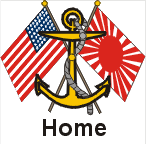 |
|||||||||||||||||
|
|
|||||||||||||||||
|
Buy your copy at these fine stores! |
|||||||||||||||||
 |
|||||||||||||||||

|
|||||||||||||||||
 |
|
|
|
The second Japanese attack struck as suddenly as the first. At 8:40 a.m., its lead-off bomb landed just short of the Tangier. Sprague, as some 300-pound bombs fell from the sky, was certain his ship would be hit; yet luck or fate were with him, for only dull thuds reverberated through his seaplane tender, and the bombs did little damage. He guessed later these bombs had burrowed into the harbor's mud before exploding harmlessly. Pearl Harbor naval headquarters, in the meanwhile, sent out a bewildering array of confusing, contradictory commands. During one five-minute span, Sprague received the following sequence of befuddling orders:
Panic acted as a free-floating enemy all its own as the unprepared Americans tried to cope with this brazen challenge. Needless to say, the gunfire from Sprague's ship accomplished little in the way of damage to the Japanese aircraft overhead, but several of Sprague's men were forced to take refuge near the Tangier's bow to escape the friendly fire of errant American bullets, a frequent and painful hazard in warfare. Nonetheless, the converted seaplane tender's crew performed their duties well. In spite of the fact that the Tangier had only seven guns, her crew's performance was one of the few bright spots on that tragic day. Her guns had kept right on firing while many other ships fired not a single shot. Her crew stopped only when they had run out of ammunition. Sprague was satisfied with his crew's performance. America was in a shooting war now, for the first time in more than twenty years, and his skills would, he knew, be sorely needed. Whatever his role might be, he was determined to do his job and let his work speak for itself. * * * * * The American public did not learn much about Sprague until later in the war, as his name was not mentioned in the aftermath of Pearl Harbor. Nonetheless, he merits more attention than he has received in naval histories up to now. Clifton Sprague was the only major American naval commander to participate in both the Pearl Harbor disaster and the American victory at Leyte Gulf. In both these events, he performed with distinction. Douglas MacArthur, William F. Halsey, and Chester W. Nimitz received the lion's share of publicity after October 1944, and Admiral Thomas Kinkaid, Cliff Sprague's Seventh Fleet commander, also became better known. Nevertheless, it was Sprague who would make the critical difference between defeat and victory at the Battle of Leyte Gulf. All his coolness and correct decision making under fire he applied so well at Pearl Harbor would be seen again in the waters off Samar Island. But before his and his command's heroism could manifest itself, the Pacific War would expand in scope and ferocity. Many important battles needed to be fought and won by the Americans. |
|
|
|
|
|
|